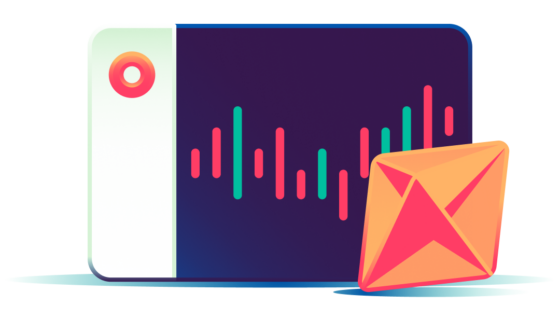Currency: Definition, Types, Use, and Value
GlossaryWhat is Currency?
What does currency actually mean? Currency is the official medium of exchange used by one or more countries. Examples of two currencies are the euro (€) in the European Union and the British pound (£) in the UK. The official currency of the Netherlands is the euro.
Other Currencies (Foreign Currencies)
Some countries do not have their own currency and instead, they use the currency of another country, such as Liechtenstein (Swiss franc, ₣). A foreign currency is also known as ‘foreign exchange’.
Currency exists in two forms: physical money (banknotes and coins) and digital money (bank cards and mobile payments). Relatively new are cryptocurrencies, like the well-known Bitcoin, though these are usually not yet considered official legal tender.
Not a BUX investor yet? Create your account
Where Does the Term ‘Currency’ Come From?
The term ‘currency’ originates from the Latin word currens, which means ‘running’ or ‘flowing’. The origin reflects the idea of money as a circulating medium of exchange. Today, the word is used to refer to the official means of payment recognised by a country or community.
The History of Currency
Currency has a centuries-old history (we’ll keep it brief). Ancient societies used gold, silver, and coins as means of payment. A major breakthrough emerged from China around the 7th century: the introduction of paper money. Several centuries later, between the 17th and 19th centuries, the Spanish dollar was introduced, which is considered the first currency in the world.
Currency Today
Nowadays, currency is largely digital, with the rise of contactless payments and cryptocurrencies like Bitcoin. Currency continues to evolve to align with how we live and trade, always aiming for simplicity and accessibility.
What Is the Purpose of Currency?
The primary purpose of currency is to buy, sell, or trade goods and services (a medium of exchange), such as your weekly groceries or your upcoming holiday. Consider it the heartbeat of transactions, allowing you to exchange value without bartering—like trading a coat for bread, as was done in the past. Currency also serves as a unit of account to compare the value of different goods and services, and as a store of value for future purchases or investments. In short, currency makes life easier.
What Types of Currency Exist?
There are various forms of currency:
- Fiat currencies: Issued by governments and based on trust. Examples include the US dollar (USD), the Danish krone (DKK), and the European euro (EUR).
- Digital currencies: Modern versions of fiat money, such as money in apps or on payment cards.
- Cryptocurrencies: Operate via decentralised technology, such as Bitcoin.
- Commodity money: Currency tied to tangible valuable goods, like gold.
Money vs. Currency: Are They the Same?
Money and currency are similar, but not identical. Currency is the physical or digital form of money used to make purchases. It’s what you hand over or tap to pay. Money is broader; it’s anything widely accepted as a medium of exchange. This includes currency, as well as gold, Bitcoin, or even an IOU. Currency can be viewed as a practical tool, whereas money represents the broader concept.
How Is the Value of a Currency Determined?
The value of a currency is determined by the balance of supply and demand in the international market. Key influencing factors include interest rates, inflation, and a country’s overall economic health. Monetary authorities, such as De Nederlandsche Bank (DNB) in the Netherlands, play a crucial role. They can influence a currency’s value by controlling the money supply and setting interest rates. Exchange rates indicate how one currency is valued in relation to another. These are mainly driven by international trade, investments, and market confidence.
Can You Use Currency to Make More Money?
While currency is used to buy goods and services, it can also help generate more wealth. By investing in assets like stocks, ETFs, or investment plans, your currency can work for you. Think long-term: with fractional shares or regular investments, you can start small and build steadily over time.
Currency also plays a role in trading or earning interest through savings accounts. It’s not about quick wins, but about using currency wisely to create opportunities. Investors also exchange currencies when their values rise or fall. The right investment can yield profit. However, be aware that trading on the foreign exchange market (FX) can be risky due to fluctuations in currency values.
Can You Store Currency?
You can store currency in various ways. For example, consider keeping euros in a bank account, storing cash in a safe, or managing digital currencies through apps. For long-term growth, you can invest in assets like ETFs or investment plans, so your money remains active rather than idle. Ultimately, storing currency is about security and accessibility, whether for everyday spending or building wealth.
Not a BUX investor yet?
Create your account in a few minutes and start building your wealth.
Investing involves risks. You can lose your investment.
All views, opinions, and analyses in this article should not be read as personal investment advice and individual investors should make their own decisions or seek independent advice. This article has not been prepared in accordance with legal requirements designed to promote the independence of investment research and is considered a marketing communication.

